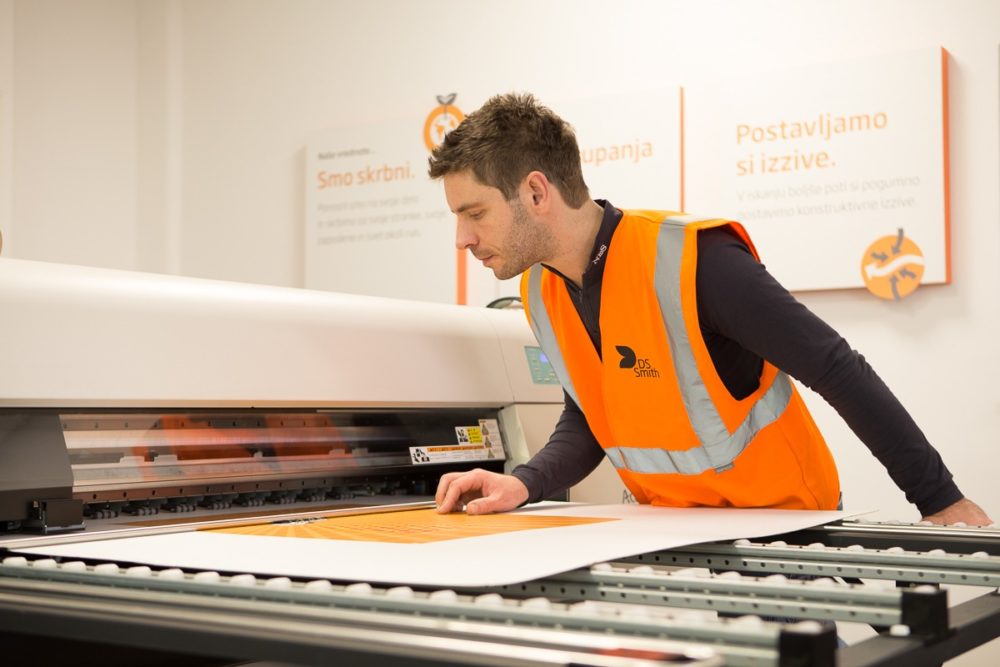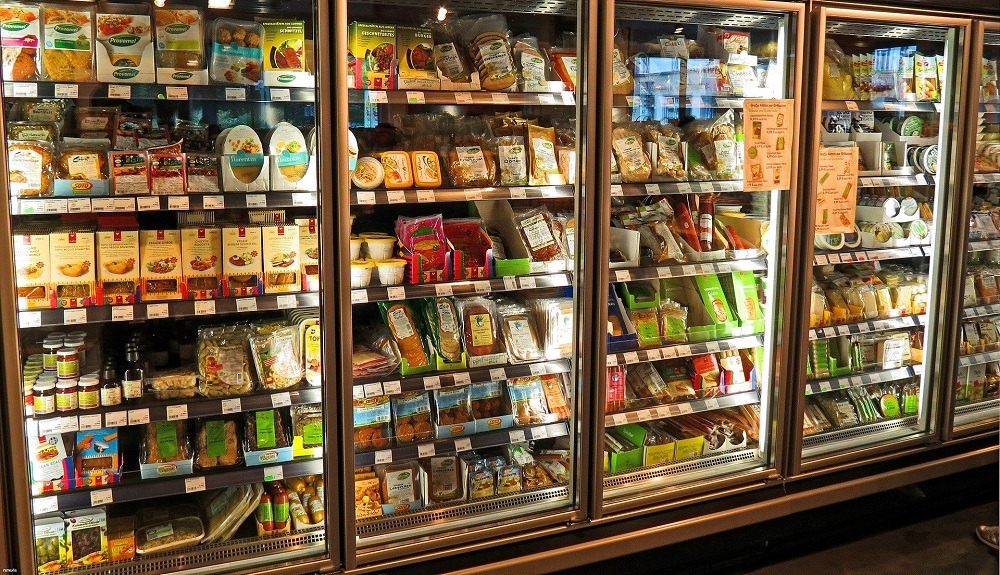DS Smith says it created an emergency provisions box within 24 hours to help food suppliers keep shelves stocked during the coronavirus crisis

DS Smith's Chris Murray believes that from a retail perspective, the key challenge is 'maintaining product availability during peak demand' (Credit: DS Smith)
Packaging firms have been helping relieve pressure on food suppliers and ensure shelves remain stocked during the current coronavirus crisis.
This comes after UK lockdown measures led to an increase in demand — largely driven by panic buying – forcing most supermarkets to impose restrictions on many essentials.
London-headquartered DS Smith has been one of the packaging companies looking to ease the burden on food suppliers, having developed a new box packaging that is designed to “maximise efficiency and provide everyday essentials to many of society’s most vulnerable”.
The Foodservice Packaging Association director Martin Kersh highlighted how “if you don’t have packaging then it’s pretty impossible to have food on the shelves”.
“The businesses producing packaging for the grocery sector are obviously working hard to ensure there is enough packaging, given that we are providing months and months of supply across a couple of weeks,” he added.
“But that said, retailers are reducing the number of lines within a range of a product, which is going to have a knock-on effect because you have to up some packaging and reduce others – bringing a huge amount of logistics.
“As things stand, we know there is packaging out there. The worry will be the supply of materials, not necessarily at the moment, but we have got to think about that in the future.”
Packaging firms’ efforts to help food suppliers during coronavirus pandemic
Kersh said about 50% of meal consumption in the UK is usually taken outside of households but believes current restrictions mean about 90% could be cooked in homes – creating a “huge dynamic and change, in such a short amount of time”.

“It is no wonder the system has creaked a bit because we had a beautifully fine-tuned system and our food supply chain is very different from our grocery supply chain,” he added.
“But then it’s about being flexible and members have responded to that, which is a good thing.
“We have some of our big food- and non-food distributors that have managed to adjust and enable supply to the public and to grocers.”
How DS Smith is helping food suppliers during the coronavirus pandemic
Provisions boxes
Alongside retailers in Europe, DS Smith created emergency provisions boxes to supply the most vulnerable during the pandemic.
The firm claims to have designed the recyclable product within 24 hours, before manufacturing and delivering it within a week.
Due to lockdown and self-isolation restrictions, some people may not be able to attend supermarkets to collect essentials, which is why DS Smith created the design so food retailers can fill the boxes, safely stack them in delivery vans and leave them on doorsteps.
Helping manage increased production
Chris Murray, DS Smith’s managing director for packaging in the UK and Ireland, said the company is “continuously monitoring the developments of the virus” and its focus remains on keeping staff and partners safe, as well as operations running to fulfil its “role in society in this challenging context”.
He added that the rising demand in food and other essential products during the crisis has prompted increased production across the supply chain and DS Smith is “helping businesses adapt to this change, continue operations and retain their staff”.

“This includes working closely with small and medium-sized enterprises (SMEs) and local businesses through to multi-nationals to design and develop packaging solutions at a time when many have revised their business models to include home delivery,” said Murray.
“For example, food outlets are now adopting take-away services and book shops are using e-commerce models to provide items direct to consumers — developments in which packaging plays a critical role.”
Leveraging its large portfolio of operations
Murray said the company is leveraging its scale of operations both within the UK and internationally, as well as what it has “learned from other countries who are ahead of the UK in the coronavirus pandemic, to create best practice across the DS Smith group”.
“This enables us to provide speed and efficiency to meet the evolving needs of our customers,” he added.
“We are utilising our in-house expertise to develop a simplified range of products aimed at ensuring businesses can adapt quickly to this fast-moving situation, many of which are taking their first steps into the e-commerce world.”
Murray believes that from a retail perspective, the key challenge is “maintaining product availability during peak demand” and said the company has developed a “number of supply chain contingency solutions” for its customers.
He said: “For example, where there are challenges around the availability of returnable equipment solutions such as returnable plastic crates and metal cages, we are offering corrugated replacements that are more hygienic and allow for fast replenishment of stock and reduction of inbound deliveries.”
Murray added that at DS Smith’s site in Hinckley, Leicestershire, the team has created a “Car Boot Tidy” to help local NHS volunteers efficiently separate and deliver medicines and food to vulnerable people in the area.
